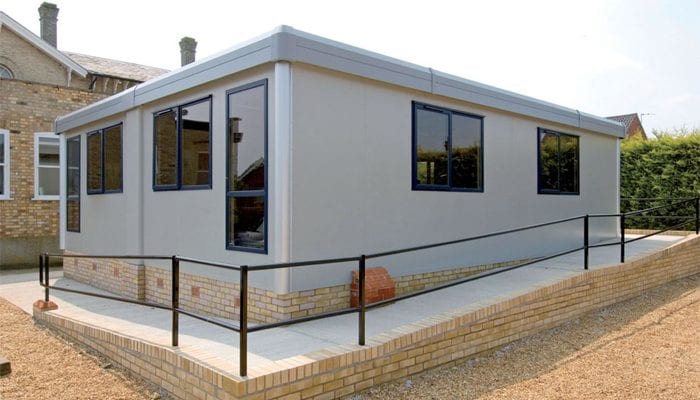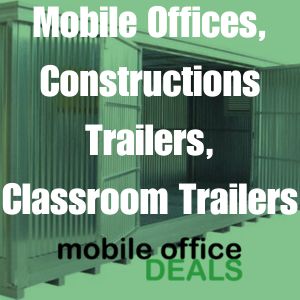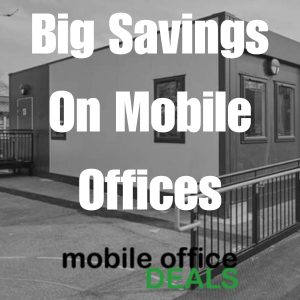
How Modular Buildings Meet the Urgent Need for Rapid Space Expansion
In today’s fast-paced business environment, the need for flexibility and speed in expanding office space has never been more critical. Traditional construction methods, while effective for long-term projects, often require significant time, resources, and upfront investment. For businesses looking to expand their office space quickly, whether due to sudden growth, temporary projects, or emergency situations, modular buildings—especially mobile office buildings—offer a practical, efficient, and cost-effective solution.
Modular buildings are prefabricated structures that are constructed off-site and then transported to their intended location. The modular approach reduces construction time, minimizes on-site disruption, and offers businesses the flexibility to expand, relocate, or downsize as needed. In particular, mobile office buildings have become a popular choice across various industries due to their versatility, affordability, and speed of deployment.
What Are Modular Buildings?
Modular buildings are constructed using sections, or modules, that are built off-site in a controlled factory environment. These modules are then transported to the installation site and assembled into a complete structure. The modular construction process differs from traditional construction in that most of the work is done in a factory setting, allowing for quicker assembly and less exposure to weather delays.
Mobile Office Buildings: A Subset of Modular Buildings
Mobile office buildings are a specific type of modular building designed to be transported easily from one location to another. These structures are typically built on a chassis or frame, allowing them to be moved as needed. They are often used as temporary office spaces, but they can also serve as long-term solutions depending on the needs of the business.
Mobile office buildings can range from simple single-room units to larger, more complex configurations with multiple rooms, bathrooms, and kitchenettes. They can be customized to include features such as HVAC systems, lighting, and technology infrastructure, making them a viable alternative to permanent office spaces.

The Urgent Need for Rapid Space Expansion
Many industries face the challenge of needing additional office space quickly. Traditional construction methods can take months or even years to complete, and the costs associated with building a permanent office space are often prohibitive for businesses that need a short-term or immediate solution. Here are some common scenarios where businesses require rapid space expansion:
- Business Growth: Companies experiencing rapid growth often find themselves outgrowing their existing office space. Hiring new staff, adding new departments, or expanding operations can require immediate additional workspace.
- Temporary Projects: Some industries, such as construction, engineering, or film production, require temporary office spaces on job sites for the duration of a project.
- Emergency Situations: Natural disasters, renovations, or sudden building damage may necessitate immediate temporary office space for displaced staff.
- Seasonal Needs: Some businesses experience seasonal fluctuations in staffing and operations, requiring additional space during peak periods but not year-round.
For these scenarios, modular buildings—specifically mobile office buildings—offer a fast and efficient solution. Let’s explore the reasons why modular construction is ideal for businesses facing urgent space requirements.
Speed of Deployment
One of the most significant advantages of mobile office buildings is the speed at which they can be deployed. Unlike traditional construction, which involves lengthy planning, permitting, and building phases, modular buildings are constructed off-site and can be delivered and assembled quickly.
Factory Construction Saves Time
Because the modules for mobile office buildings are built in a factory setting, they are not subject to the delays often caused by weather or site conditions. Simultaneously, site preparation (such as grading and foundation work) can occur while the building is being constructed off-site, significantly reducing the overall project timeline. This parallel workflow allows modular buildings to be completed up to 50% faster than traditional construction projects.
Rapid Assembly On-Site
Once the modules are delivered to the site, assembly is quick and efficient. Mobile office buildings can be set up within a matter of days, depending on the size and complexity of the structure. This speed of deployment is crucial for businesses that need to expand their workspace immediately, whether to accommodate new staff or set up a temporary office for a project.
For businesses facing urgent space needs, the ability to have a fully functional office in place within days—rather than months—makes mobile office buildings an attractive option.

Flexibility and Scalability
Another key advantage of modular buildings, especially mobile office units, is their flexibility and scalability. Businesses often experience changes in their space requirements over time, and modular buildings offer a level of adaptability that traditional construction cannot match.
Temporary or Permanent Solutions
Mobile office buildings can be used as temporary solutions for businesses that need extra space for a specific project or event. However, they are also durable enough to serve as long-term office spaces if needed. This versatility allows businesses to adapt their workspace to their current needs without committing to permanent construction costs.
For example, a construction company might use a mobile office on a job site for the duration of the project, then relocate the building to the next site or return it once the project is completed. Alternatively, a growing business may use a mobile office as a stopgap measure while planning a more permanent office expansion.
Easy to Relocate and Modify
One of the most appealing aspects of mobile office buildings is their portability. If a business needs to relocate, the mobile office can be easily transported to a new site. This is particularly beneficial for industries such as construction, oil and gas, and event management, where the office location may need to change frequently.
In addition to being relocatable, modular buildings are also scalable. Businesses can easily add or remove modules as needed, allowing them to expand or downsize their office space without the need for a complete rebuild. This scalability ensures that businesses only pay for the space they need, making it a cost-effective solution in both the short and long term.

Cost-Effectiveness
Cost is a major consideration for any business expansion, and modular buildings offer a more affordable alternative to traditional construction. The savings associated with modular construction come from several factors:
Lower Construction Costs
Because modular buildings are constructed off-site in a controlled environment, labor costs are often lower. The factory setting allows for better oversight, fewer mistakes, and more efficient use of materials. Additionally, the speed of modular construction reduces labor hours, which translates to lower overall costs.
Reduced Site Preparation
Mobile office buildings require minimal site preparation compared to traditional construction. Since much of the work is done off-site, businesses save on costs related to foundation work, excavation, and other site preparation activities.
Shorter Project Timelines
Time is money, and the shorter project timelines associated with modular construction mean businesses can start using their new office space sooner. This faster turnaround helps businesses avoid the long-term costs of renting temporary office space or delaying important projects.
Energy Efficiency and Sustainability
Many modular buildings are designed with energy efficiency in mind. High-quality insulation, energy-efficient windows, and eco-friendly materials reduce operating costs over time. These energy savings, combined with the reduced waste associated with off-site construction, make modular buildings a more sustainable and cost-effective choice.

Customization and Design Options
While speed and cost are often the primary drivers behind choosing modular buildings, customization is another significant benefit. Mobile office buildings can be tailored to meet the specific needs of a business, ensuring that the space is functional and well-suited to the company’s operations.
Custom Floor Plans
Modular buildings are available in a variety of floor plans, and businesses can work with modular building providers to design a layout that meets their specific needs. Whether you need an open-plan office, individual workspaces, conference rooms, or storage areas, mobile office buildings can be customized to include the features and amenities your business requires.
Modern and Attractive Designs
Gone are the days when modular buildings were considered unattractive or purely utilitarian. Today’s mobile office buildings come in a wide range of modern designs, with options for high-quality finishes, stylish exteriors, and comfortable interiors. These buildings can be designed to match the aesthetics of your existing structures or branded to reflect your company’s image.
Technological Integration
Modern businesses rely heavily on technology, and mobile office buildings can be equipped with the necessary infrastructure to support your tech needs. From high-speed internet access to advanced HVAC systems, mobile offices can be designed to accommodate the latest technology, ensuring that your business runs smoothly.

Industries That Benefit from Mobile Office Buildings
Mobile office buildings are used across a wide range of industries due to their versatility and convenience. Here are some industries where mobile office buildings are particularly valuable:
Construction
Construction companies often need temporary offices on job sites to manage day-to-day operations, coordinate teams, and handle paperwork. Mobile office buildings offer a convenient and portable solution, allowing construction managers to have a fully equipped office on-site for the duration of the project.
Education
Schools and universities facing overcrowding or undergoing renovations can use mobile office buildings as temporary classrooms or administrative spaces. These buildings provide a safe, functional environment for students and staff while permanent structures are being built or repaired.
Healthcare
Healthcare facilities often require rapid space expansion to accommodate growing patient populations, new medical services, or emergency response efforts. Mobile office buildings can be used as temporary clinics, administrative offices, or testing sites, providing a quick and flexible solution for healthcare providers.
Events and Entertainment
The events and entertainment industries frequently need temporary office space for managing large-scale events, such as festivals, concerts, and sporting events. Mobile office buildings offer a practical and cost-effective solution for event organizers, allowing them to set up fully functional offices on-site.
In today’s business world, the ability to expand and adapt quickly is essential. Mobile office buildings provide an ideal solution for businesses that need additional space in a short amount of time. With their fast deployment, flexibility, cost-effectiveness, and customization options, modular buildings are becoming an increasingly popular choice across various industries.
